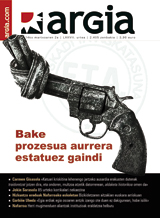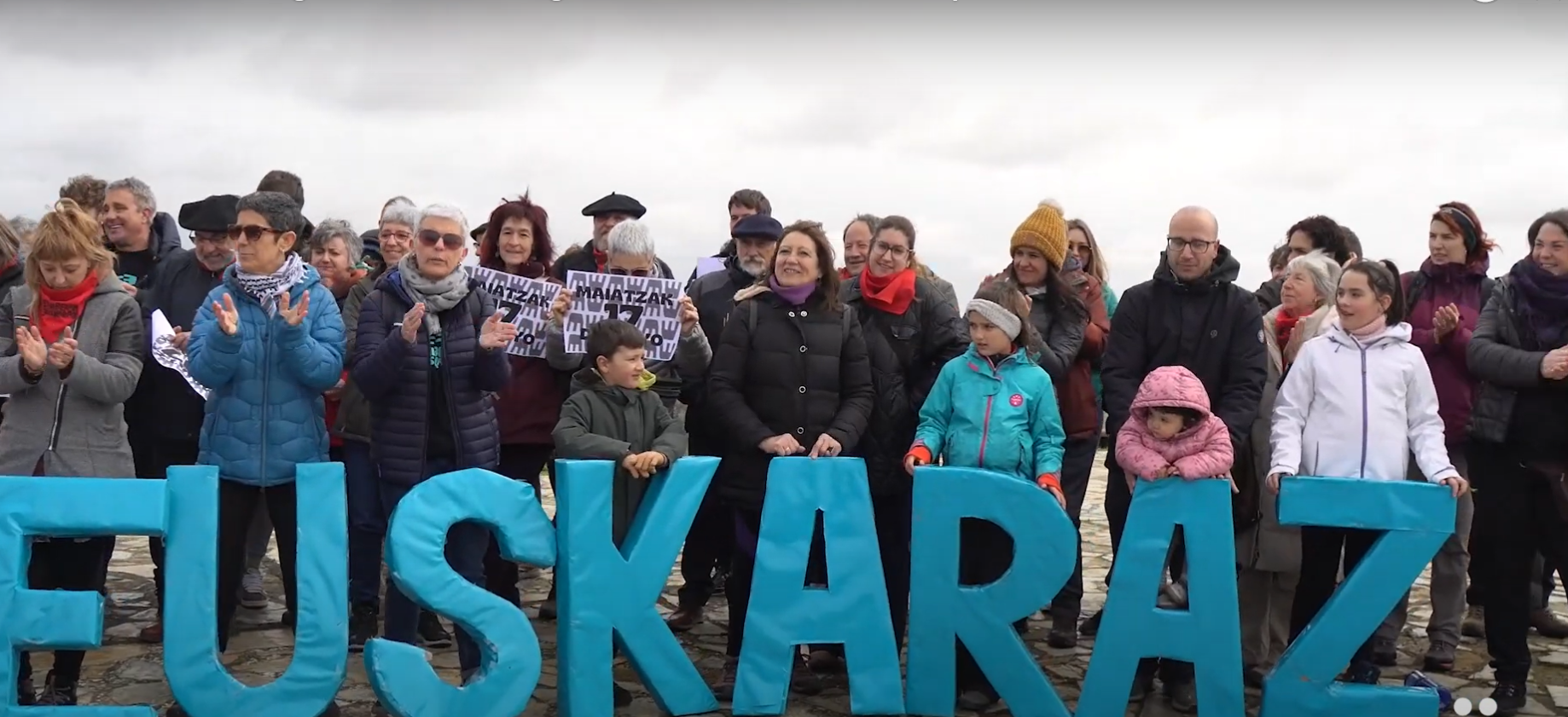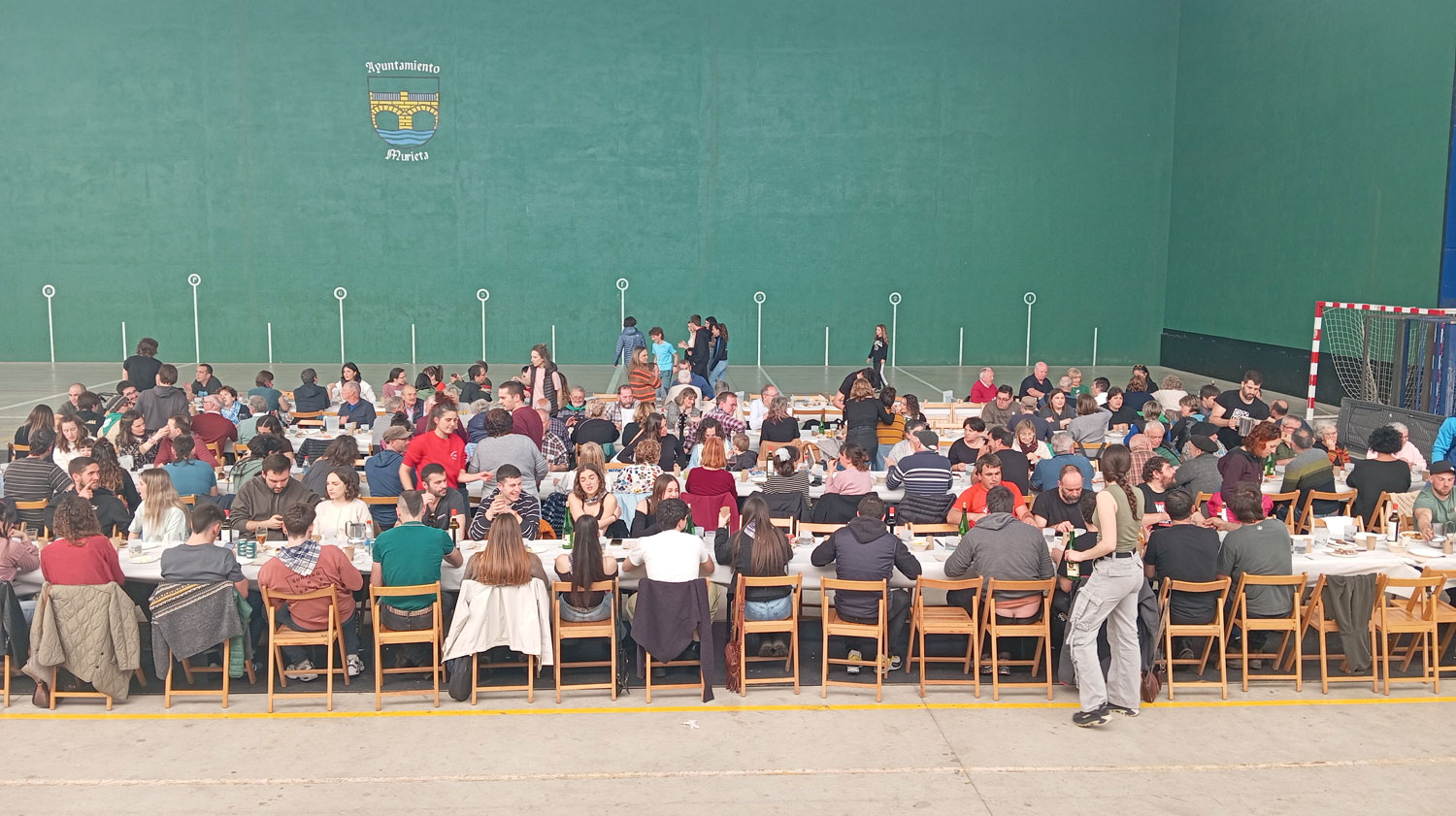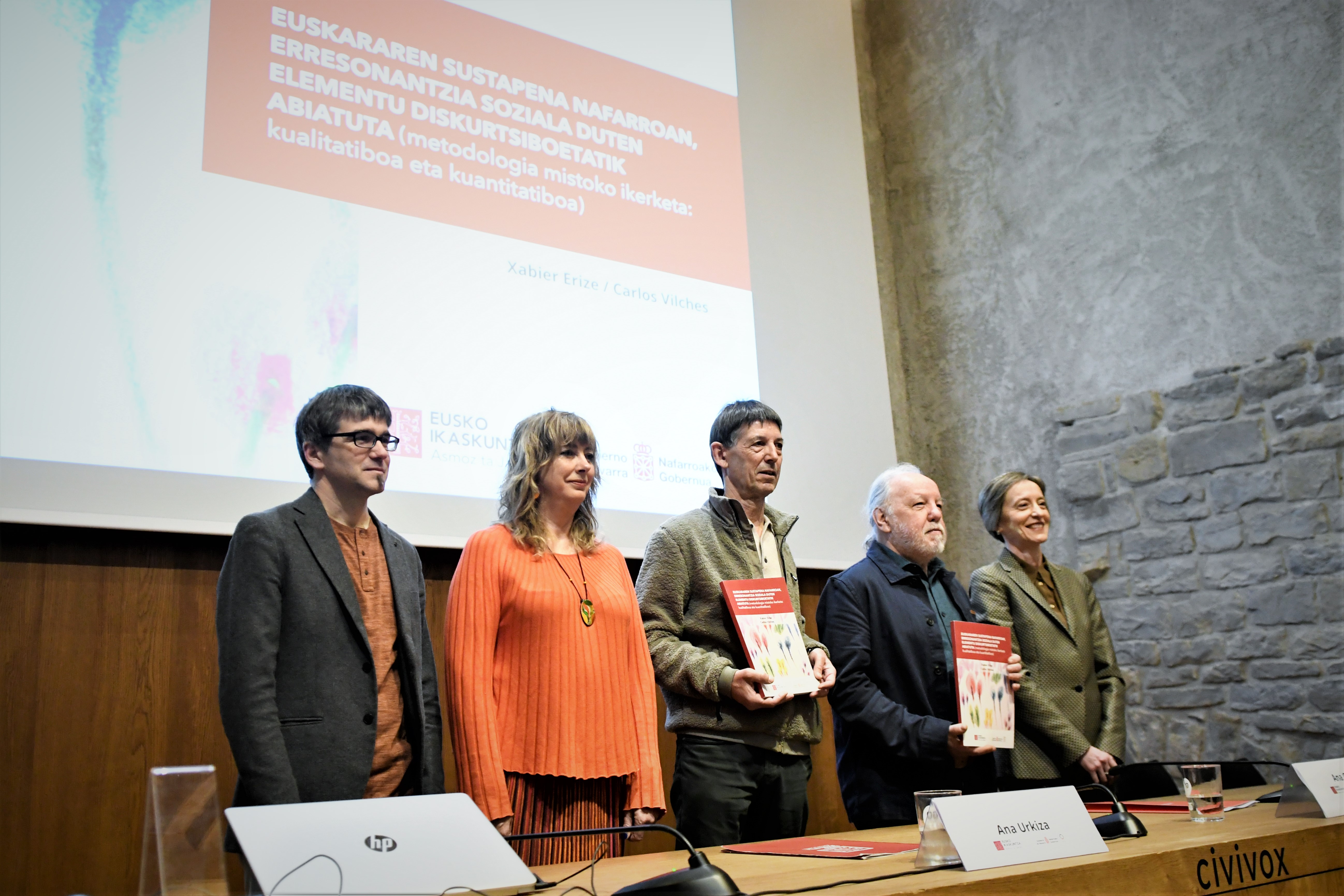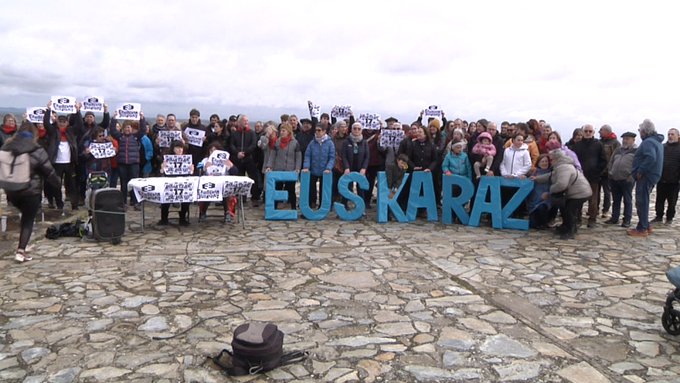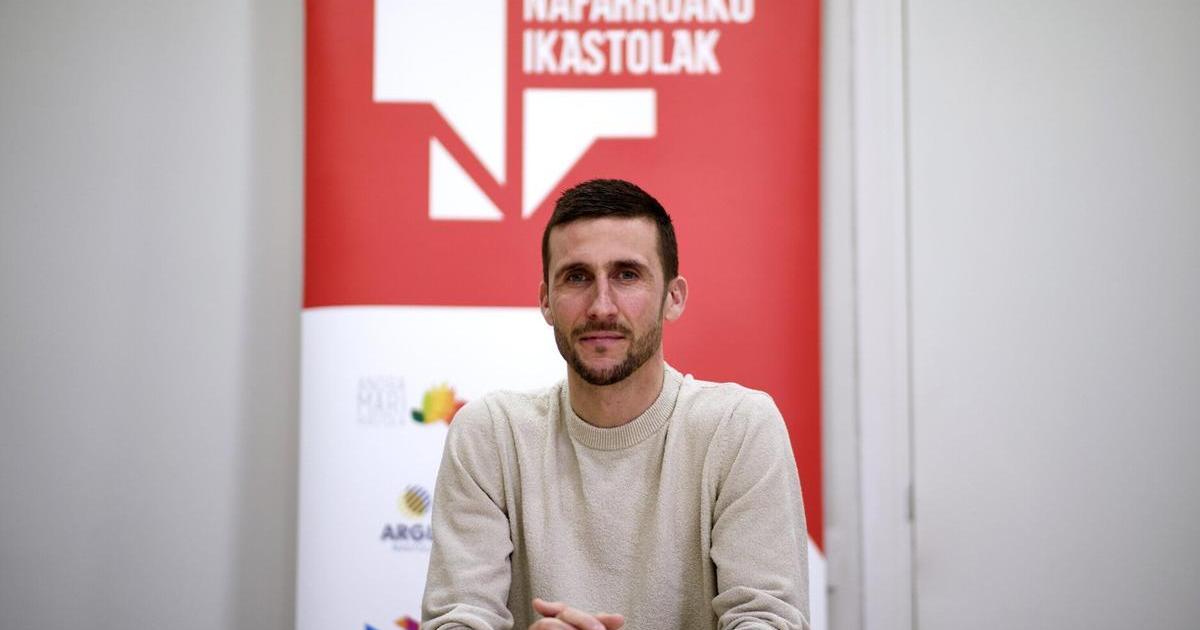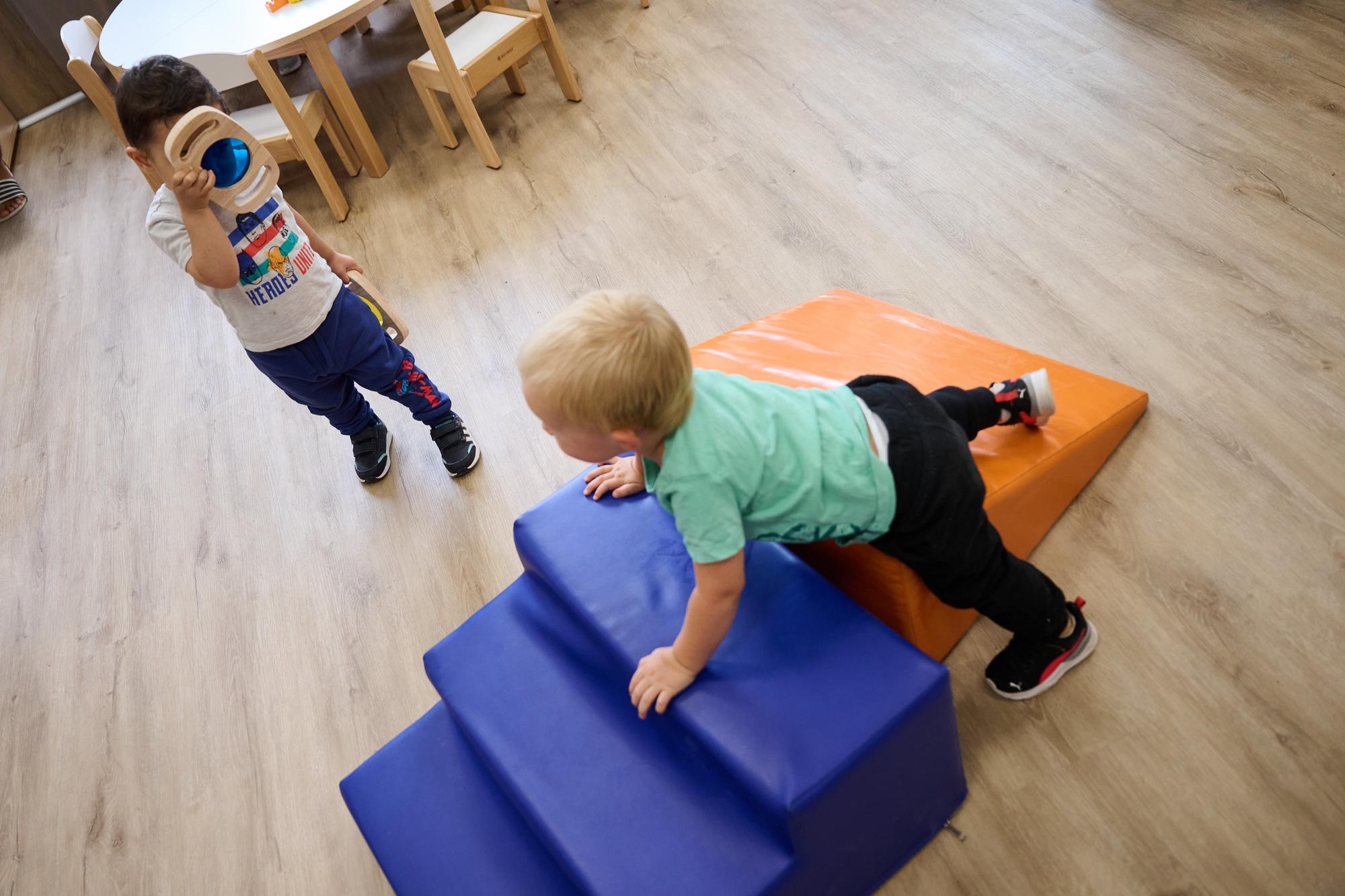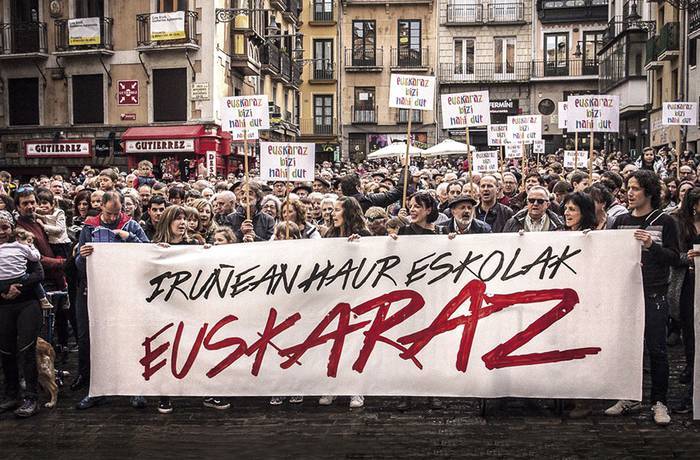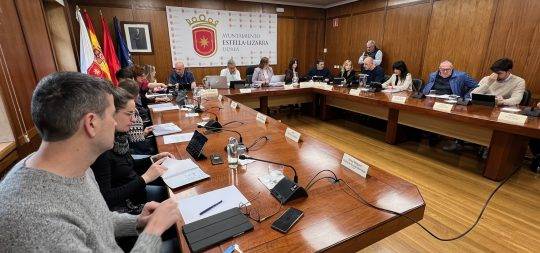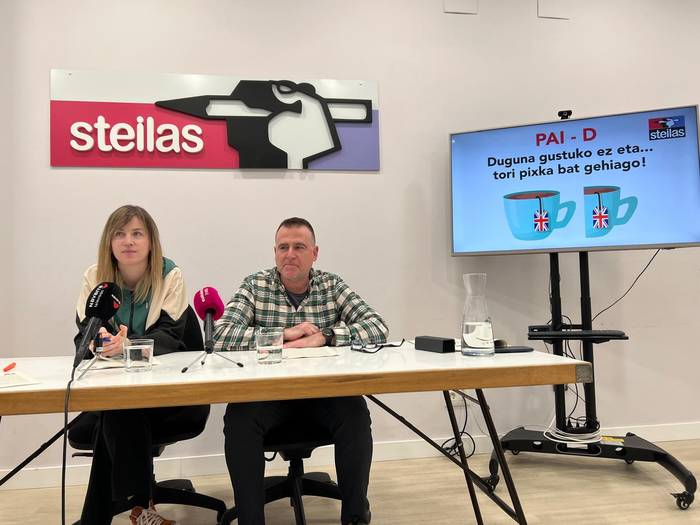Coexistence in Spanish
- The Parliament of Navarre has asked the Government of Navarre to group pupils from different language models in schools. Coexistence is the reason for the signatory groups, all but Bildu and Aralar-NaBai, who have signed a document. But there are many agents of the educational community and the Basque world who complain that this coexistence is going to take place in Spanish.
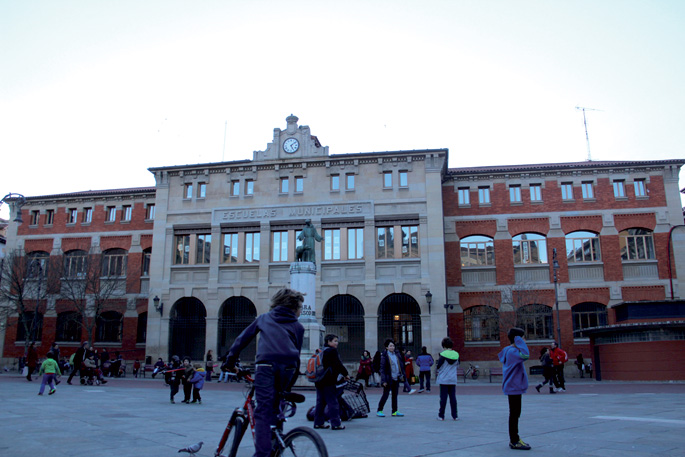
THE PARLIAMENT OF NAVARRA approved on 9 January a motion calling on the government to “coexist the different linguistic models in public centres”. The proposal was tabled by Group I-E and supported by the other parties in Parliament, except Bildu and Aralar-NaBai, who have not signed an agreement. They have therefore asked the foreign government to "reorganize the educational provision" and to offer "all language models in all centres where a distribution has been given". They say that the school has to guarantee the “right to coexistence” and that the distribution of schools by linguistic models does not.
Models A, D and G coexist at the Zizur Mayor Institute in a single building. Outside the classroom, students come together in all spaces. And since the whole staff of the center is not bilingual, both the students and the teachers of the model D have to work in Spanish, among other things, to talk to the counselor or with some gatekeepers. Therefore, when assessing the motion of the Parliament of Navarra, the professors of the IES Zizurko Leire Zabaltza and Mikel Ripodas speak of the experience of the practice: “Our center is a clear example of what this motion seeks.”
Ripodas complains about the situation of the center because “in the end, the Basque country is always a loser”, so he fears that its functioning will extend to the other centers. In short, in this situation it is understood that “there is no model of immersion”. “Yes, yes,” Zabaltza directed, “but it is a model of immersion in Spanish, and that needs to be clarified.” They have directly suffered the consequences of the coexistence of linguistic models, to the detriment of the Basque country. Ripodas has clearly explained this: “In our center there is a model D in the classroom when we close the door; the rest of the spaces are in Spanish.”
The motion approved speaks of coexistence, but Zabaleta believes that the objective of linguistic models is not coexistence, but the defense of a language: “Linguistic models, as the word says, are created to work a language.” Ripodas explains with an example: "Does a football team have to be in touch with the basketball team?" It doesn't make sense. The one who is playing football, at that moment, is playing football. And at the end of the session, you will have contact with everyone you want.” Through the comparison, the students enrolled in model D request that all the school activity in Basque be carried out. And they don't think that affects coexistence. Otherwise, according to Zabraise, “it seems that only Castilian can guarantee coexistence.”
Similarly, Rosa Ramos, an Euskera technique of the City Council of Berriozar, is expressed. He believes that the new measure "eliminates the possibility that the student who is learning Basque can speak in Basque in the non-formal spaces of the school". It considers that the text is a “simplistic approach”, as it aims to “solve the global problems of society, reducing the use of the Basque Country”. It refers to concepts such as democratic coexistence or equality between men and women. It is clear that they are “desirable approaches”, “but they will not be solved just by putting children together.” Moreover, he considers that the very approach of the proposal is “demagogic”, as “it seems that by speaking in Basque these problems are aggravated”.
Distribution or ghettos
The Law of the Vascuence of Navarra distinguishes three areas for the teaching of languages. Thus, in the so-called non-vascophony zone, by law, citizens do not have the right to study in model D. In the other two areas, model D coexists with the other linguistic models: A, B and G. Currently, around twenty centers confuse D with other models. At one time they were much more, but over the years the tendency has been to divide the centers according to linguistic models. As explained in the motion approved by Parliament, this distribution “has a negative impact on the socialization of students and on education for coexistence”, attributing its responsibility to the Department of Education, which is in the hands of UPN.
But Ramos does not share that reading and does not believe that the tendency to distribute the centers according to linguistic models is something that “comes as time.” Their explanation is very different: “This process took place because people saw that this organization was necessary, especially in the Region of Pamplona, since many children only have the school as a space in Euskera.”
That is why Ramos does not believe that this situation could lead to ghetto. And if they existed, “the way to fix it wouldn’t be that we all did it in Spanish and enough. That is assimilation.” The creation of spaces in Basque is, in his opinion, a measure that requires the situation of the Basque country. “The measures taken must be different because the situations of the linguistic communities are different.” And he's tired of having to repeat over and over again the same reason. “On the issue of equality between women and men we all understand that, but with the Basque Country it is incomprehensible to them.”
Richard Weyndling, for his part, well understands the need for the Basque country to have its own space. In fact, the Scottish resides in Pamplona/Iruña for 20 years. As he proudly explains, his children are trilingual, and have as their mother tongue Basque, Spanish and English. For this reason, and because he was an English teacher, he knows the needs of language learning closely: “For boys and girls to learn more than one language, they have to be clear about where each language is used; they need a reference for its use.” For this reason, and because “Castilian is a very dominant force”, it is clear that the Basque needs “a differentiated space”. And he complains about the motion because, if applied, “the classroom would be the only space in Euskera.”
In any case, Weyndling does not deny the need to boost the relationship between linguistic models. But it is clear that we must take advantage of this relationship in order to bring Basque culture and Basque culture closer to those who learn in Spanish models, and not the other way around. “So that those who do not know their own culture can do so.” This idea is shared by Ramos, who says that “it is convenient to speak of the Basque language to the Castilian speakers”. In short, he believes that the basis of coexistence is respect and that “respect is based on knowledge”. Only thus, through mutual knowledge, can we guarantee that coexistence is not synonymous with Spanish. Or, on the contrary, that coexistence is also possible in Euskera.
Maiatzaren 17an Erriberako lehenengo Euskararen Eguna eginen da Arguedasen, sortu berri den eta eskualdeko hamaika elkarte eta eragile biltzen dituen Erriberan Euskaraz sareak antolatuta
We have had to endure another attack on our language by the Department of Education of the Government of Navarre; we have been forced to make an anti-Basque change in the PAI program. In recent years, by law, new Model D schools have had to introduce the PAI program and have had... [+]
Prentsaurrekoan, maiatzaren 17an ospatuko duten Erriberako Euskararen Egunaren inguruko argibideak eman dituzte. Ume, gazte zein helduentzat zuzendua izango da. Ekimena, Erriberan egiten diren ekimenetan indarrak biltzeko eta euskararen normalizazioaren alde saretzeko... [+]
Nafarroako Ikastolen Elkarteak lehendakari berria du. Oier Sanjurjok hartu dio lekukoa Elena Zabaleta Andresenari. Beste zazpi kide izanen ditu alboan Sanjurjok.
Ez dira gutxi azken boladan euskara bere onenean ez dagoela eta bere transmisioa bermatuta ez dagoela ohartarazten ari diren ahotsak. Bestetik, inork ez du ukatzen hezkuntzak ezinbesteko betebeharra duenik euskara eta euskal kulturaren biziraupenerako. Erronka estrategikoa... [+]
Iruñeko haur eskoletako zuzendariek, EH Bildu, Geroa Bai, Zurekin Nafarroa eta PSNren arteko akordioa kritikatu dute. “Murgiltze ereduaren alde egin dugu beti, baina inoiz ez da gure iritzia kontutan hartzen” salatu du Euskalerria Irratian, Garikoitz Torregrosa... [+]
Euskarazko eskaintza handitzeko akordioa erdietsi dute EH Bilduk, PSNk, Geroa Baik eta Zurekin Nafarroak
Plazara, AEK, Uda Leku, Dindaia eta Ebete antolakundeak Baionan elkartu dira Famili'on egonaldi ibiltariaren lehen edizioa aurkezteko. Hizkuntza mailaren arabera eskaintza bat edo beste egongo da eta haur zein gurasoentzat izango da udaberrian.
Administrazio Epaitegiak arrazoia eman dio EH Bilduk Lizarrako plantilla organikoaren hizkutnz profilen aurka jarritako helegiteari.









